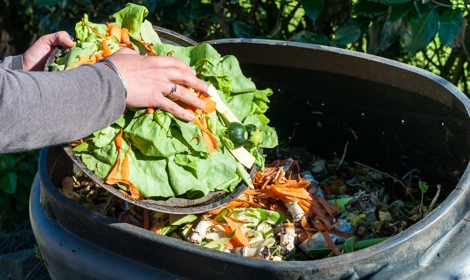
Value of FBOs Not “Wasted” on EPA: FBOs Essential Partners for New EPA Initiative to Reduce Food Waste
Chelsea Langston
In the midst of national debates about where to draw the lines in the separation of church and state, one thing remains clear: faith-based organizations and communities remain one of the most vital resources the government has in meeting many of its goals. In January 2016, the Environmental Protection Agency turned to diverse communities of faith to help achieve its lofty aim of reducing food waste in the United States by 50% by the year 2030. EPA Administrator Gina McCarthy stated that by engaging faith-groups, the EPA is “tapping into incredibly motivated and dedicated people.” McCarthy further noted to NPR that food sustainability and waste reduction aligns with the central principles of an array of faith-based entities, “particularly helping the poor and feeding the hungry.”
The EPA’s initiative to engage individuals and groups of faith is called the “Food Steward’s Pledge.” The EPA’s website states: “Faith communities understand the need to care for the well-being of all people and responsible stewardship of our resources for both current and future generations.” The EPA explicitly invites faith-based organizations and businesses to join its Food Recovery Challenge to “help redirect good, wholesome food away from landfills and to food pantries and soup kitchens where it can be used to feed the world’s most vulnerable populations.” The EPA’s strategic engagement of faith groups as invaluable participants in reducing food waste speaks to the proven effectiveness and dedication of faith-based organizations. The EPA has created two ways in which FBOs can engage in the Food Recovery Challenge: 1. As “endorsers” that educate other organizations about the link between food and environmental sustainability. 2. As “participants” that reduce food waste directly through donation, composting, etc.
According to McCarthy, the EPA has chosen to engage FBOs in an effort to “tackle this problem more systemically and bring a broader number of stakeholders to the table.” In reaching out strategically to FBOs for creative partnerships to achieve shared goals, the EPA is demonstrating what many Americans already know: separation of church and state does not mean that people and organizations of faith remove their faith from public life. Rather, in this case, the EPA recognized the overlap between its own aims at food reduction and environmental sustainability and the core values of serving your neighbor and being good stewards of resources that so many communities of faith already espouse.
The EPA’s engagement of faith communities goes beyond asking them to sign a pledge. The EPA offers written resources, webinars, free technical assistance, annual awards for faith organizations, and more to partner with these organizations in its Food Recovery Challenge.
Faith-based organizations, whether or not they wish to engage with the EPA’s program, should consider the value of partnering with government on a state, local and federal level. Faith-based organizations face many misconceptions today about their freedom to both partner with government in creative and innovative ways and their freedom to remain true to their faith-based identities. The EPA’s Food Steward’s Pledge and Food Recovery Challenge is an excellent example of the government’s reliance on communities of faith to comprehensively embody their religious missions, not leave their religious principles on the sidelines. As the EPA’s efforts to engage faith communities demonstrates, it is not in spite of their faith principles that these organizations are effective and value resources, but because of their faith identities and precepts that the government has turned to them for help.
Often, when the government’s partnership with FBOs is covered in the media, the conversation is focused on how the government is trying to limit an FBO’s access to grant programs, or how the government is trying to demand an FBO sacrifice an essential element of its faith. These are important subjects that pose tangible challenges to the institutional religious freedom of many faith-based service organizations. Yet, it is equally important for organizations and people of faith to educate the public about the ways in which the government relies on partnerships with religious organizations every day to achieve a myriad of interests. The EPA’s new faith initiative is just one example to hold up. For faith-based organizations to continue to remain free to serve, it is essential they lift their voices and demonstrate their unique value to their communities, a value that cannot be divorced from the faith from which it originated.
